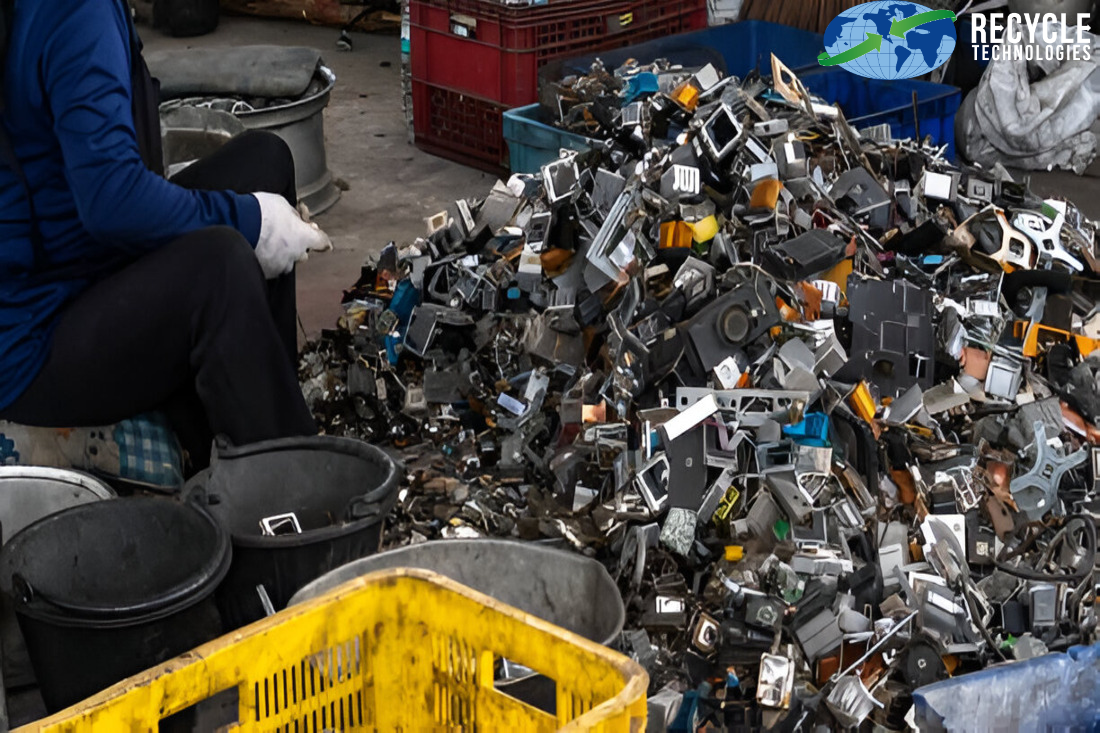Many electronic devices have harmful components that can seep into the earth and water supply unless treated right. As a result, countries worldwide are finding electronic waste recycling techniques to manage waste better. Companies such as Recycle Technologies are some of the few visionary companies trying to bring recycling to the mainstream.
Effective legislation unites all the stakeholders involved with e-waste recycling by ensuring proper disposal methods. We at Recycle Technologies pledge to make a unified code of recycling regulations to help everyone. Our involvement in the Association of Lighting and Mercury Recyclers (ALMR) holds us on top of ever-changing policies and regulations.
We are also one of the few shredding companies in the Midwest to be an AAA NAID certified member. Our work comprises plant-based operations endorsed for paper/printed media, micro media, and computer hard drive destruction.
In this blog, we explore why we need a unified legislation system globally for recycling e-waste, what the frameworks are currently in use, and what the future holds. Read on to find our commitment to sustainability.
The Need for Legislation in Electronic Waste Recycling
Legislation is essential in electronic waste recycling to establish guidelines and regulations that promote responsible disposal practices. Given the importance of maintaining solid and universal e-waste, many US states have formulated their laws based on needs. If we talk about our core supply regions, Michigan and Wisconsin, both states have their own rules for recycling waste.
In 2022, Michigan Legislature introduced the Natural Resources and Environmental Protection Act, a solid waste management guideline within the state limits. On the other hand, in Wisconsin, solid waste management has been a part of the law since 1990. However, for many other states, recycling policies are either not a part of the legislation, or the laws must present higher stakes. A universal code of legislature can help everyone bind to a single format.
The need for modern recycling practices must recognize the need for proper legislation in electronics waste recycling.
Current Legislative Frameworks for Electronic Waste Recycling
Let's look at the existing laws and regulations at the national and international levels that govern electronic waste recycling globally. All these frameworks have vital provisions and requirements, such as collection targets, recycling standards, and producer responsibility. Examples of such legislation include Resource Conservation and Recovery Act (RCRA) in the United States and a National Framework for Advancing the US Recycling System.
Resource Conservation and Recovery Act (RCRA)
The Resource Conservation and Recovery Act (RCRA) is a federal statute that establishes guidelines for dealing with hazardous and non-hazardous trash. The legislation defines the Congressionally mandated waste management program and grants the EPA the authority to create the RCRA program. It is common practice to refer to the statute, rules, and EPA policy and guidance all under the RCRA umbrella.
National Framework for Advancing the US Recycling System
According to the EPA's official website, the National Framework for Advancing the US Recycling System implements a circular economy strategy for all types of waste. Recyclers like Recycle Technologies implement such methods to focus on reducing waste production in local areas and implementing materials management solutions that include groups with environmental justice issues.
Challenges and Limitations of Legislation in Electronic Waste Recycling
Implementing and enforcing electronic waste recycling legislation can be challenging. This section will explore the obstacles faced in ensuring compliance with recycling laws. It will discuss potential loopholes and areas for improvement in existing legislation, such as the need for stricter enforcement and better monitoring systems.
Future Trends and Innovations in Legislative Approaches
It is high time that we discuss the role of extended producer responsibility, eco-design, and circular economy principles in shaping future legislation. These approaches aim to minimize waste generation, promote sustainable product design, and encourage electronic waste recycling.

Also Read: Recycle Technologies Complete E-Waste Recycling Process
Conclusion
Legislation is crucial in driving change and sustainability in electronic waste recycling. It establishes guidelines, promotes responsible disposal practices, and increases recycling rates. However, continuous improvement and collaboration between governments, industry stakeholders, and consumers are necessary to address the challenges and limitations of existing legislation. By staying informed about legislative developments and supporting recycling initiatives, individuals and organizations can contribute to a more sustainable future.
If you are looking for competent electronic waste recycling near you, Recycle Technologies can help solve all your waste handling problems.
Contact us today at https://www.recycletechnologies.comquote/, or call us at (800) 969-5166.
You can also email our sales team at dispatch@recycletechnologies.com.













